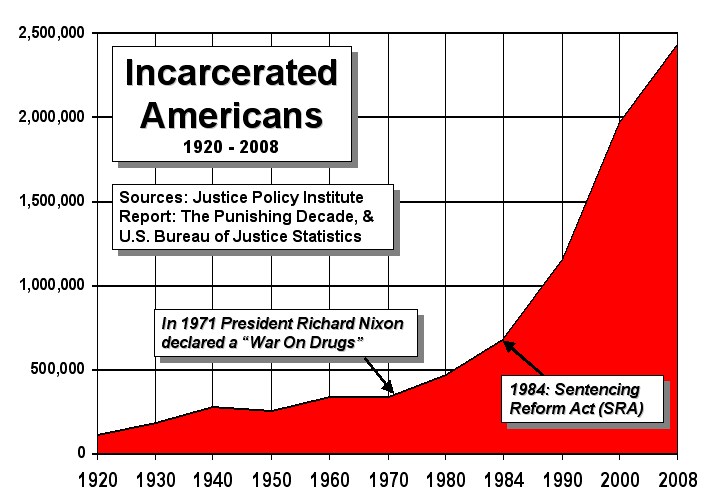Part 4 of "When Smoke Gets in my I" a series on the history of cannabis and human consciousness. "If you know the truth, the truth will make you free." (John 8:32)Jesus used Marijuana As doubtful as the following hypothesis might first seem to the reader, I might as well boldly state my case right from the start: either Jesus used marijuana or he was not the Christ. The very word "Christ", by the implication of its linguistic origins and true meaning, gives us the most profound evidence that Jesus did in fact use the same herb as his ancient semitic ancestors, and which is still used by people around the world for its enlightening and healing properties.
The Greek title "Christ" is the translation of the Hebrew word Messiah, which in English becomes "The Anointed"
D. The Messiah was recognized as such by his being anointed with the holy anointing oil, the use of which was restricted to the instillation of Hebrew priests and kings (
See CC#5). If Jesus was not initiated in this fashion then he was not the Christ, and had no official claim to the title.
D The title "Messiah" is much older than Christianity, as all the ancient kings of Israel are referred to as the "Messiah". "Christos - Anointed One, a title of many Middle-Eastern sacrificial gods: Attis, Adonis, Tammuz, Osiris. . ." 12
|
The ancient recipe for this anointing oil, recorded in the Old Testament book of Exodus (30: 22-23) included over nine pounds of flowering cannabis tops, Hebrew "kaneh-bosm"
B, extracted into a hind (about 6.5 litres) of olive oil, along with a variety of other herbs and spices. The ancient chosen ones were literally drenched in this potent cannabis holy oil.
B The "m" is a pronounced plural, and the singular kaneh-bos sounds remarkably similar to the modern cannabis. Although often mistranslated as "calamus", the word has been translated as "fragrant-cane" in most modern bibles, and specifically designates the fragrant flowering tops of cannabis.
|
From the time of Moses until that of the later prophet Samuel, the holy anointing oil was used by the shamanic Levite priesthood to receive the "revelations of the Lord". At the dawn of the age of Kings, Samuel extended the use of the anointing oil to the Hebraic monarchs by anointing Saul (and later David) as "Messiah-king". These kings lead their people with the benefit of insights achieved through using the holy anointing oil to become "possessed with the spirit of the Lord."
"Anointing was common among kings of Israel. It was the sign and symbol of royalty. The word 'Messiah' signifies the 'Anointed One', and none of the kings of Israel were styled the Messiah unless anointed."
1 The title was clearly only given to those "having the crown of God's unction upon them" (Leviticus 21:12).
After the fall of the Jewish kingdoms, and the bloody purges following the forged discovery of the Book of theLaw (1 Kings 23), the cannabis holy oil was prohibited as associated with pagan worship. Yet it seems that certain sects retained the topical entheogen, and continued to practice the older religion, silently awaiting the return of a Messiah-king in the line of David.
The ministry of Jesus marked the return of the Jewish Messiah-kings, and thus the re-emergence of the holy oil. Jesus was called the Christ because he violated the Old Testament taboo on the cannabis oil and distributed it freely for initiation rites and to heal the sick and wounded.
Although there is some evidence of Jesus' use of this Judaic cannabis oil in the traditional New Testament, we get a clearer picture of its importance when we also look at surviving Gnostic documents. The term Gnostic, meaning "knowledge", refers to a variety of early Christian sects which had extremely different beliefs about both Jesus and his teachings than those which have come down to us through modern Christianity.
Other Christian Sources For the first four hundred years after Jesus' birth, the term "Christian" was used to describe a wide variety of sects and a large volume of different documents. Through the acceptance of one of the more ascetic branches of Christianity by the Roman ruling class, Christianity eventually became the state religion of its former persecutors.
In an effort to unify the faith into a controllable mass, the newly formed Roman Catholic Church held a number of councils. These councils prohibited not only pagans, but also differing Christian sects, and edited a wealth of Christian literature down to the few meager documents which have survived as the modern New Testament.
Z Z The New Testament in its present form was composed and edited between 367-397AD, about twelve generations after the events in question.
|
In an attempt to save their manuscripts from the editorial flames of the Roman Catholic Church, certain Christians, now considered Gnostic heretics, hid copies of their scrolls in caves. One of these ancient hiding places was rediscovered in our own century, and the large collection of early Christian documents was named the Nag Hamadi Library,
2 after the Egyptian area where it was found. Prior to this discovery, what little was known of the Gnostics came from a few fragmentary texts, and the many polemics written against them by the founders of the Catholic Church.
There is no reason to consider these ancient Gnostic documents as less accurate portrayals of the life and teachings of Jesus than the New Testament accounts. In a sense, the rediscovery of the Nag Hamadi Library marks the resurrection of a more historical Jesus, an ecstatic rebel sage who preached enlightenment through rituals involving magical plants, and who is more analogous to the Indian Shiva, or the Greek Dionysus, than the pious ascetic that has come down to us through the Bible's New Testament.
The Anointed One Contrary to the depiction given in the New Testament gospels of Matthew and Luke, Jesus was likely not born as the Messiah. He received this title through his initiation by John the Baptist, and so it is not surprising that both Mark and John are conspicuously absent of the virgin-birth mythology, and begin their stories of Jesus' short career with his initiation by John.
Although their version of Jesus' baptism by John describes it as involving submersion under water, the term "baptism" has connotations of "initiation", and Gnostic scriptures indicate that the original rite was performed in conjunction with the kaneh-bosm anointing rite, "the annointing taking place either before or after the baptismal ceremony."
3 Some Gnostic texts also specifically state that Jesus recieved the title Christ "because of the anointing,"
4 not because of a water baptism.
Conceivably, the washing off of the oil with water would have been a means to begin the termination of ritual and the oil's effects.
The description of the after-effects of the rite clearly indicates that Jesus underwent an intense psychological experience, more than one would recieve from a simple submersion in water.
 |
K The reference to a dove may have connotations of the Goddess tradition, which was continued by the Gnostics, who paid special attention to Sophia, Goddess of Wisdom. In earlier times the dove was sacred to Astarts, Aphrodite, Ishtar and other forms of the Goddess. "Gnostic Christians said Sophia was incarnate in the dove. . . that descended on Jesus at his baptism to impregnate his mind." 12
|
Jesus came from Nazareth Galilee and was baptised by John in the Jordan. As Jesus was coming up out of the water, he saw heaven being torn open and the Spirit descending upon him like a dove. K And a voice came from heaven "You are my Son, whom I love; with you I am well pleased." At once the Spirit sent him out into the desert, and he was in the desert for forty days, being tempted by Satan. He was with wild animals, and angels attended him. (Mark 1: 9-13) It should be noted that the vision and words described were seen and heard only by Jesus, as it specifically states that "he saw".
The role played by John the Baptist, as priest and prophet, is very similiar to that of the Old Testament prophet Samuel. Just as Samuel's annointing of Saul and David marked them as Messiah-king, so did Jesus' initiation by John make him the Christ.
In the events after Jesus' vision and his overwhelmed recluse into the desert, there are clear parallels with the story of the prophet Samuel's initiation of Saul with the cannabis-rich holy ointment, and Saul's ensuing madness in the form of possession by the Spirit, and wandering off to make
nabi (act in a frenzied ecstatic manner) (1 Samuel 10).
The tale of Saul's possession by the spirit is an example of how the ancients interpreted the effects of cannabis and other entheogens. What we perceive as being "high" or "stoned" the ancients called "possessed by the Spirit of the Lord."
"As a result of the spiritual 'anointing' Jesus expected to be different; and he was different. The prophecies had said that the Messiah would recieve from God wisdom and insight, the power to heal and to subjugate evil. The faith of Jesus was so strong that he did not question that these capacities had now been conferred upon him."
6The entheogenic effect of the cannabis annointing oil would have immensely magnified both Jesus' own expectations, and the ensuing experience with John.
|
 |
J The same proclamation is stated of the Anointed One, or King in Psalm 2: 7.
|
In some authorative texts of the Gospel according to Luke, after the Baptism the voice of God declares, "This day I have begotten thee."
J This indicates that the event of Jesus' encounter with John marks the true beginnings of Jesus' mission and his acknowledgement as the Messiah.
The importance of the anointing, and Jesus' own acknowledgement of it, is again exemplified in the gospel of Luke.
According to the New Testament Jesus began his ministry in Nazareth, by reading the following passage from the scroll of Isaiah and proclaiming, "today this scripture has been fulfilled in your hearing" (Luke 4:16)
The Spirit of Yahweh God is upon me, because Yahweh has anointed me to bring good tidings to the afflicted; he has sent me to bind up the brokenhearted, to proclaim liberty to the captives, and the opening of the prison to those who are bound... (Isaiah 61:1-2) The Anointed Ones Unlike the shamanistic priests and kings of earlier generations, Jesus did not follow the strict Old Testament taboos that limited the holy cannabis oils use to Yahweh's chosen few (Exodus 30:33), but broke tradition and began to liberally use it in both healing and initiation rites.
Through this open distribution the singular Christ, "the Anointed", was extended to become the plural term "Christians", that is, those who had been smeared or anointed.














